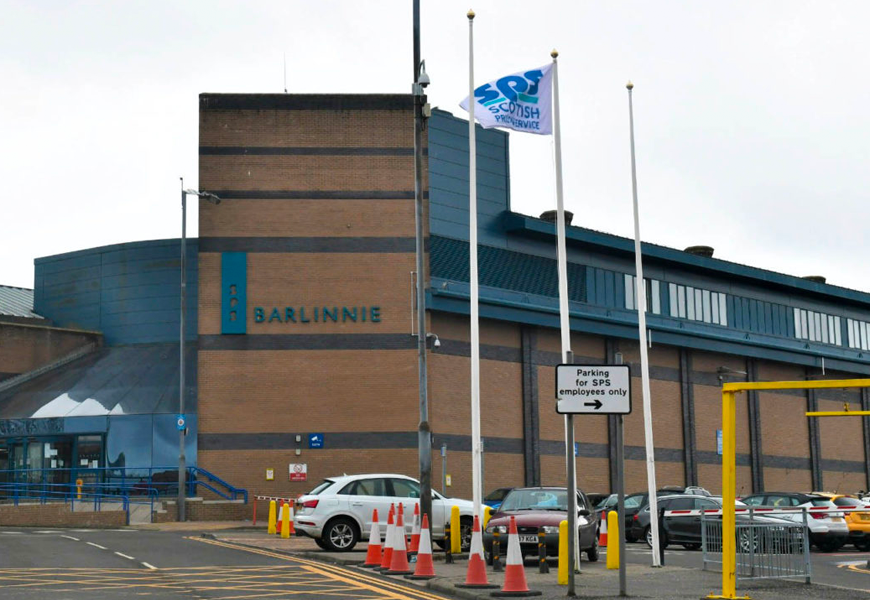Senior Data Analyst, Community Empowerment Services/Community Justice Glasgow
From previous years of reading the Community Justice reporter, you may be aware of Pathfinder to Health, Housing & Benefits (PHHaB) Partnership, if not you can get some background in our article in the 20-21 Annual Reporter ‘Improving Prison Throughcare.’ PHHaB is an example of using data for more effective targeting of resources which you can read more about in the article ‘Data Sharing – Playing its Part in a Preventative Model for Community Justice’. You can access both of these by CLICKING THE PICTURE LINKs OR SCANNING THE QR CODES BELOW:
In this year’s report I wanted to give an update to the work in 2021/2022, the first year of the project operating.
For those new to the partnership, a brief introduction – PHHaB came about as an iteration to the Scottish Prison Services, ‘Sustainable Housing on Release for Everyone’ (SHORE) standards. These standards sought to support an individual’s reintegration into the community through ensuring the individual’s housing needs are met when released from prison, you can find out more about SHORE Standards by CLICKING THE PICTURE LINK OR SCANNING THE QR CODE BELOW:
Simultaneously Glasgow City Council held a multi-partner meeting in HMP Barlinnie, which considered key challenges and opportunities for Prison Throughcare, through the lens of Financial Inclusion and Tackling Poverty.
Both programmes highlighted aspects which make it difficult for anyone leaving the prison system to return to the community with a route which did not lead back to a behaviour of reoffending. With this multi-partner approach in mind, a presentation was given to the Community Planning Partnership which proposed the formation of a new partnership approach focused on proactive interventions for Glasgow citizens in prison utilising the prison through-care. Barlinnie prison was selected as the initial pilot prison, with 75% of Glasgow’s male prison population attending through Barlinnie’s doors.
In the previous years’ updates (noted above), these articles went into some detail as to the soft launch which was planned for March 2020 and delayed due to the pandemic. Both articles discussed the large volume of work done over 2020 which focused on early release and the partnerships early stages in 2021.
Two years on from this initial stage, what is it we have learned?
- In the first year of PHHaB, 797 individuals required the assistance of the Social Work Homeless Casework team for homeless or accommodation support.
- In 2021-22 the data sharing agreement with SPS has enabled the data analysts to identify 471 who were homeless at point of admission to prison to begin dealing with the housing issues before release.
In the early part of 2021 a data sharing agreements was formed with 17 Registered Social Landlords across the City, including the largest housing providers Wheatley Group Glasgow. This agreement allowed for the partnership to proactively communicate while an individual is in custody. Previously housing issues would be dealt with prior to exit from prison, where an eviction process may have already been concluded, as the housing provider may have no knowledge where the individual is located.
Over the course of PHHaB’s first year more than 500 individuals have had details share with their housing provider across the City. Where possible existing housing has been sustained – removing the individual from the homelessness route entirely. This eliminates the disruption caused to an individual serving a short-term sentence and return to find they have been evicted, which would be stressful not to mention the upheaval of losing personal possessions. It is also of a benefit to the housing provider, who does not have to go through a lengthy and expensive eviction process.
This has been so effective with the small number of RSL’s across the city in the pilot phase, in the next year the partnership will be expanding across the city to include any Registered Housing provider who wishes to be a part of the project.
By sharing data, the partnership is able to be more effective in its communication with partners, to deal with issues before they become a problem.
Although housing has been a main aspect of service user support in the first year, the PHHaB has been more than simply housing support. The Social Work Homeless Casework team reported that 68% more prison leavers now left with some sort of support ranging from Universal Credit claims, alcohol and drug recovery support to fire safety talks from Scottish Fire and Rescue.
Moving into 2022, we saw many of the face-to-face covid restrictions being removed, allowing for New Routes mentors to again participate in meeting service users, at the gate when released from prison, to offer in-person support so badly missed in previous years.
We are very excited to see the progress in the first year of the partnership and so much upcoming in the second year ahead we will look forward to writing about it all in 2023, stay tuned.








